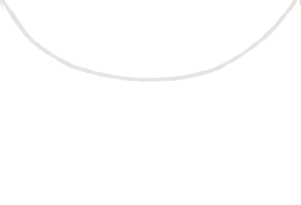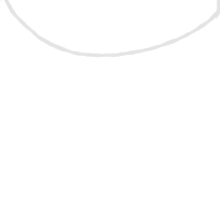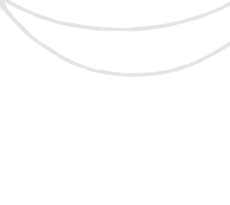The Consumerisation of the Internet
I want to write more blog posts here. Or in the very least, it's something I feel I should be doing. The blog section exists for sharing some long-form thoughts and more textual parts of my projects, but I've barely touched it and I fear that may give an impression that I've neglected this place. Or if not that, my neglect leads to falling out of habit of writing things here.
That latter point is where I think several causes may lie.
This post admittedly become something of a vent. I'm not really sure if it's a productive vent in the end — I'm sure there's a non-zero number of visitors to my website who barely know me, and maybe there's stuff in here they don't actually need to know. All that said, it's the best way I felt I could elucidate these feelings.
Content warnings: mentions of death, harassment
Low RAM
The first two reasons for my lack of posting are more personal. I was diagnosed with autism earlier this year, and I probably share some traits with ADHD. I struggle a lot with decision paralysis — the inability to simply start things because the scope of the activity feels overwhelming or not immediately satisfying. My brain will latch onto a more front-and-centre appeal and I'll simply focus on that instead, as if possessed.
This usually manifests in scrolling random internet websites, for hours, as a part inside me yells desperately to get to a more important task. It sucks! It feels like my decision paralysis has got significantly worse in the past few years, on top of the existing behaviour of cycling through projects in the 2010s.
There is, admittedly, an element of artist perfectionism. My artistic and game development ability has improved over the years, and as a result my standards for what I should be able to achieve sometimes outpace my present stamina. What this means is that I totally could do the thing that my mind is placing on a pedestal, it just would take a lot more work than my mind is willing to put in. (Or in some cases, would actually tire me out.)
The next reason is around 2017, my mum was diagnosed with cancer. She died in 2024. In 2018 and 2020 I also dealt with some online trauma that I'd rather not get into the specifics of. Spending six years with that background stress does a number on you — the internet become scary to exist on, even people I thought were friends had become reactive and aggressive. Meanwhile when it came to my home life, I basically had to watch my mum waste away for years, leading to me avoiding my family because I couldn't deal with watching her constantly be ill.
I'm in better places socially now, and I think I'm pushing beyond the dark worms in my mind reflecting my hurt. It's still definitely exhausting, though.
Immediate Satisfaction
So it's not out of the question my brain needs either immediate feedback or to know of the potential of feedback. It could be due to some neurochemical thing I've been long undiagnosed about, or it could be taught. Because frankly, the internet has changed since its early days, and not always for the better.
When I was at school in the 00s, the internet for me was largely made up of Deviantart, specific fan forums, Livejournal, and IRC chats. Nowadays, we basically only have Twitter II (Bluesky, or the fascist alternatives), Tumblr, and Discord. And I guess Tiktok if you're a lost cause.

The important point here is the majority of online communication is now done on microblogging. A post must be able to be quickly posted, quickly consumed, and quickly shared. The social media UX idea of sharing drastically changed how people online interacted with the stuff they saw. This to me is an element that has lead to the consumerisation of the internet — where what you like is more important than what you do.
There's a certain paradox to this. In its final years, Twitter was pretty insistent on every individual user as a pseudo-business or potential influencer. (Youtube is deep in it now too.) Everything was about catching an audience and getting good metrics. But in practice what actually got more attention was sharing things you like, or current events. (This kind of leads back to the harassment vectors too, since association with problematic media was a whole thing.)
And herein lies what I feel is a third element to my difficulty in doing things or posting things. The thing the internet has taught me is that things with a lot of time-investment and effort are not engaged with on these merits, but immediate consumability. Not only must a post be on one of the only websites anyone uses these days, but it must be punchy and able to be understood in a few seconds, so you can move on to the next thing in your timeline.
Microblogging has killed blogging, in essence.
But it's not just blogging that I think has been affected, it's just the thing with the easiest parallel. It also affects all forms of creation, as I have repeatedly found myself less interested in doing something if I can't post about it, or if I can't be sure anyone will see it. It's very easy to be lost in the noise of social media! I have repeatedly found the posts of mine that are most popular are the ones shared by already popular people. I have to create things other people like so that they will serve as my loudspeaker. If I don't do that and my stuff falls under the radar? Well, it's not exactly motivating is it?
We didn't have this problem in the era of Deviantart and Livejournal. I followed friends on those things, I got updates in my notifications or friends list about new art or posts. I could pretty consistently get comments and give comments on all those things. Livejournal even has privacy settings that no other website has managed to match yet! But that feels like a discussion for another time. (Dreamwidth does, but it was based on LJ's engine.)
Perhaps it's a combination of my brain nonsense and the design of social media, but for the sake of clarity I want to talk here about social media. The social media "timeline" runs squarely counter to the way DA and LJ's "inbox" style feedback worked. There were no retweets or reblogs for starters, you had to share things manually by copying links. The inbox served to show you what your friends were up to, especially LJ's friend page. You could make the argument it was a proto-timeline, but at least these were full-sized blog posts! And they could be private!
The microblogging era spawned by Twitter, and the sharing popuarlised by Tumblr, both of these I feel have — at least for me — negatively affected how we engage with art/get feedback on art. It's not just that being seen can be the luck of the draw, it's that people are also simply not as interested as using their words any more. A retweet or a favourite is all they do. This habit that we have all built up has made us obsessed with this mode of interaction over others, and it's ruining the brains of creative types.
Someone sharing a favourite pretty photo on Instagram or shocking news story and then moving on to the next thing? None of it really matters to them, the posts created by other people are a hide they wear until they move on to the next thing. This system is perfect for them. But us artists used to live through the conversation of our art, of talking about our art with each other, even if it's because it's all we had. Now there's simple buttons to do it for us, and we can do it dozens of times a minute if we wanted, along with everyone else doing it dozens of times a minute.
After all that you gotta wonder, can a small artist at the bottom the world ever hope to get her voice in? I don't even comment that much on art sites any more, because my brain has been taught not to bother if it's not snappy, if the art is not snappy, just like all the microblogging. I really wish it wasn't so broken by the need for immediate satisfaction.
The State of Things
I don't really have an answer, at least culturally. On a more personal level I'd really like to wrestle my drive and focus back from the depths of whatever stole it. I sometimes succeed, for a period. On a wider level, I think we just all ought to seek out smaller communities again run by like minded creatures. The pursuit of funny big numbers has become an addiction for many, even when we're not consciously thinking of it that way — I'm certainly not immune. I think that when we're in smaller spaces with systems constructed not in the interest of metrics and being seen, we should see more conversation and time taken to enjoy things.
It certainly might help combat the rise of the Whatever.











